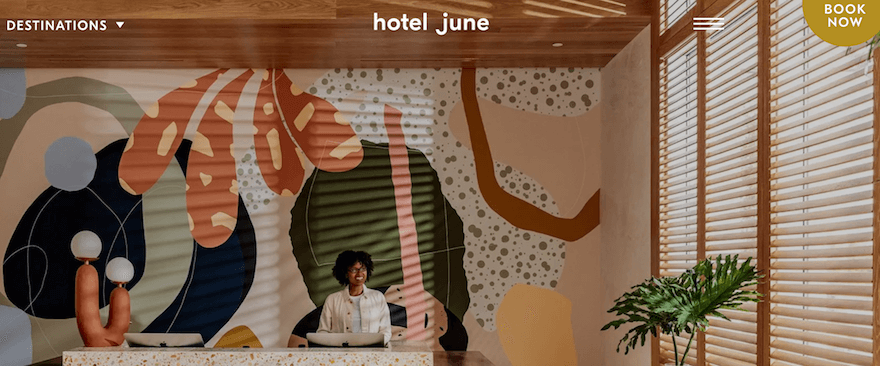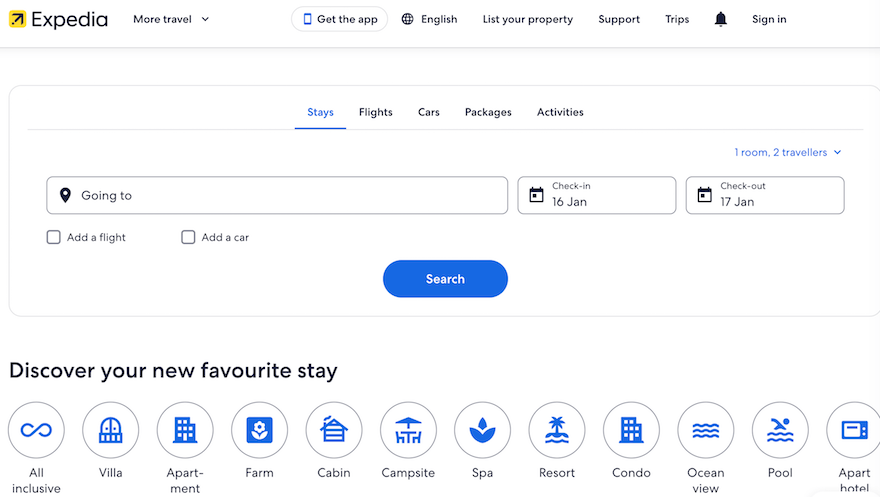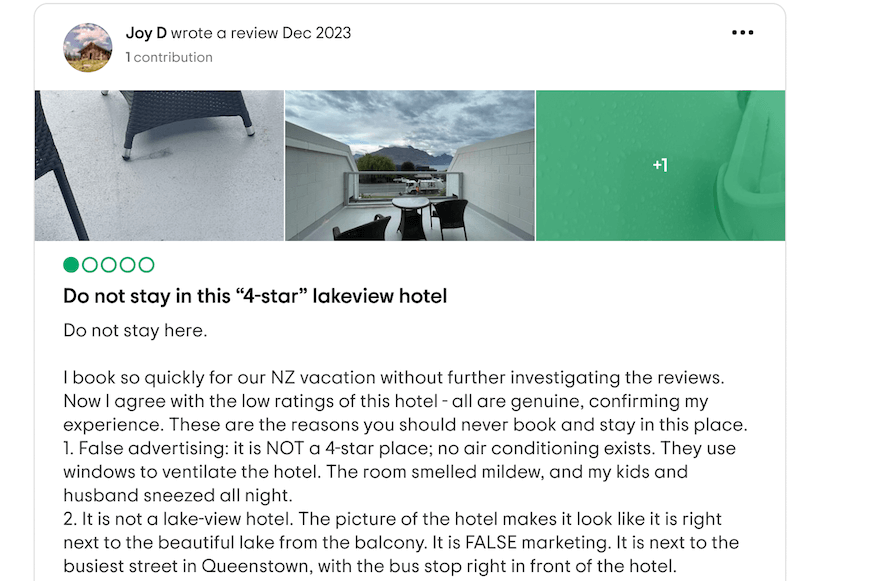A 2024 Guide to Starting Your Hotel Online
Our independent research projects and impartial reviews are funded in part by affiliate commissions, at no extra cost to our readers. Learn more
Despite taking an understandable hit during the COVID-19 years, thanks to the rise of website builders and the popularity of booking online, the hotel industry is still, according, to Statista, a trillion-dollar industry. The fact that people will always need a warm bed and a roof over their heads while on vacation means hotels will always be popular.
That means selecting a hotel as a business model is an easy choice. Less easy, though, is actually putting that idea into practice. With so many legal and regulatory hoops to jump through, and so much competition already out there, establishing – and growing – a hotel is no mean feat.
Fear not, though – the below guide will tell you exactly how to start a hotel business that soars. From planning and researching the market to creating a brand, we’ll walk you through how to market and manage all aspects of your hotel, its partners, and its reputation.
Market Research and Planning
First up? Assessing the state of play in your local hotel business.
You’ll need to analyze the lay of the existing hospitality land – and that means researching the market. Undertaking market research for your hotel will help you understand and meet the evolving needs of your future guests, while staying on top of emerging travel patterns, popular booking platforms, and current hotel market dynamics.
For a full overview of using market research to understand your audience, our guide will help. But, if you don’t have the time for such a comprehensive take, here are a few quick tips:
- Consider the demographics, psychographics, and behavioral characteristics of your potential guests to understand your hotel’s target audience.
- Identify your hotel’s niche within the broader hospitality market (such as eco-friendliness, luxury, or catering to a specific demographic of guests) to differentiate it from competitors.
- Research your hotel’s direct competitors – both local and online – and evaluate their online presence, pricing strategies, customer reviews, and overall market positioning.
- Establish clear, achievable business goals (both short- and long-term) that align with your vision for your hotel. These goals can tie into specific, measurable KPIs: such as occupancy rates, revenue targets, and customer satisfaction metrics.
Legal and Regulatory Considerations
Starting a hotel in the US isn’t as simple as throwing open your doors and lighting up a green neon ‘Vacancy’ sign. You’ll have your fair share of regulatory red tape to wade past until you can legally accept your first guest.
This includes:
- Choosing a suitable business structure (for example, sole proprietorship, partnership, LLC, or corporation) and registering your hotel with the relevant state authorities. You’ll also need to obtain a Federal Employer Identification Number (FEIN) from the IRS before you can hire your first bellboy or valet.
- Checking zoning laws and land use regulations to ensure your chosen location is suitable for a hotel, then obtaining the necessary permits and approvals from local planning and zoning departments.
- Obtaining health department permits for any on-site dining facilities, plus a hotel license and – if you’re planning to operate a bar at your hotel – a liquor license, too.
- Ensuring your hotel’s facilities and services are accessible for individuals with disabilities, for example ensuring step-free access to key entrances and exits.
- Protecting your hotel’s name, logo, and other intellectual property by registering trademarks. Be sure, too, to safeguard your guests’ data by complying with data protection laws – especially if you collect and process guest information online.
Creating a Strong Online Brand
The hospitality market will always be bustling with competition. So, your hotel will need a strong brand to cut through all that fluff and help you not only grab and hold your potential guests’ attention but also convince them to stay at your hotel over the others.
So how can you successfully build a brand online? Start by:
- Developing a unique and memorable brand identity: clearly defining your hotel’s unique value proposition and personality, designing a memorable logo, and choosing a cohesive color palette and typography.
- Crafting a compelling brand story that conveys your hotel’s history, vision, and values, while highlighting any unique features such as architectural elements, community involvement, or sustainability practices.
- Establishing a presence on key social media platforms – Facebook, Instagram, LinkedIn, and X (formerly Twitter) are all excellent places to start, as is TikTok (although this will depend on the demographic of your ideal hotel guest).
- Ensure consistency in branding across all your online and offline platforms: using the same logo, colors, and messaging throughout your website, social media, and marketing materials to guarantee a consistent audience experience. Follow hotel website design best practices to ensure a good user journey.
Online Booking Systems
Before you can start accepting bookings, you’ll need to get online to create a website for your hotel. The easiest way to do this? Through a website builder.
Website builders are tools, such as Wix, Squarespace, and GoDaddy, which allow you to create an online presence for your hotel – quickly, easily, affordably, and without needing to know how to code (or needing to pay someone who does).
Not all website builders are equal, though, so our guide to the best website builders will help you pick the right one for your hotel. You’ll also need to choose a website builder that comes with a strong online booking system, or at least the ability to integrate with one via a reliable third-party plugin.
With the right online booking system in place, your guests will be able to view your hotel rooms’ availability and rates on your website and book directly through your business. This helps you avoid paying out big commissions to third-party booking sites such as TripAdvisor or Booking.com, and giving your sales and revenue a big boost.
Want to know more? Dive straight into our article on how to build a hotel website.

Digital Marketing Strategies
How you market your new hotel online will have a large, and direct, correlation with how successful it will be. So how can you employ digital marketing strategies to best effect?
Well, our digital marketing tips will help get you started. But for some quickfire, hotel-specific advice here, we can recommend:
- Investing in content marketing – which includes writing and publishing blogs on your website – to boost your hotel website’s SEO (search engine optimization) efforts, and increase its likelihood of appearing higher in Google and Bing rankings.
- Promoting your hotel via social media, interacting with your brand’s followers there through liking and commenting, and encouraging guests who’ve had a positive experience at your hotel to talk about it on their social platforms.
- Utilizing email marketing to retain and attract hotel guests. There are various types of hotel newsletters you can send, including publishing a monthly newsletter, offering potential customers deals or discounted stays via email, or retargeting customers who once browsed rooms on your website.
- Getting in touch with influencers to offer them free stays in return for publicity.
Utilizing Online Travel Agencies (OTAs)
Online travel agencies (OTAs) are sites such as Expedia, Hotels.com, Booking.com, and TripAdvisor. These platforms have a large user base and huge global reach, and – by partnering with them – you can bring in more business than your website will alone. (At least in your hotel’s early days!)
Here are our top tips for working with OTAs:
- Negotiate early and fiercely to secure a favorable commission rate and contract terms.
- Explore partnerships with niche OTAs that cater to your hotel’s specific target market.
- Maintain rate parity across all your distribution channels to avoid pricing conflicts and engender trust – although nothing is stopping you from offering incentives for booking directly through your hotel’s website.
- Implement dynamic pricing strategies to adjust your hotel’s rates based on demand, local events, and competitor pricing while staying within the agreed-upon parameters of your deals with OTAs.
- Strategically use OTAs to promote seasonal packages, special offers, and promotions.
- Take advantage of the marketing tools OTAs offer – such as sponsored listings and featured placements – to enhance visibility and attract more bookings.
- Regularly analyze the performance metrics OTAs provide to understand booking trends and customer demographics – and adjust your hotel’s prices accordingly.

Online Reputation Management
In hospitality, good reviews are, arguably, more important than in any other industry. After all, flip the perspective for a moment, and ask yourself when the last time was that you – as a consumer – didn’t check a stay’s Google or TripAdvisor before you reserved it.
For this reason, how you manage your hotel’s reputation online will be instrumental to its success. To do this, be sure to:
- Monitor and respond to online reviews (especially the negative ones) across platforms such as Google Reviews, TripAdvisor, Yelp, and social media.
- Encourage satisfied guests to leave reviews after their stay with you. You can do this via social media, your website, or in post-stay emails addressed directly to the guest.
- Resolve any issues proactively, offering solutions or compensation to dissatisfied guests and taking the conversation offline as soon as possible.
- Use any negative feedback to refine and improve your hotel’s approach going forward.

Cybersecurity Measures
As a hotel, you have a responsibility to every guest that walks into your lobby. First and foremost, that’s to ensure they have a pleasant stay – but it goes beyond that. Because your hotel also has a responsibility to safeguard your guests’ most sensitive information and demonstrate your commitment to storing that data privately and securely.
To do this, ensure all your guest information is encrypted, and that your website meets the latest cybersecurity standards. (An SSL certificate is the bare minimum.) If you’re taking payments on-site and online, you’ll also need to ensure your hotel is PCI (Payment Card Industry Data Security Standard) compliant – your payment processor can help you get up to speed here.
Do all this correctly, and you’ll meet your state’s strict data collection and storage policies. Do it poorly, and you risk exposing your customers’ information in a data breach – and all the financial and reputational consequences that come with it.
For more information on this topic, tick a few items off our website security checklist, browse the latest cybersecurity statistics, or learn how to make your website more secure.
How to Start a Hotel Business: Summary
In this guide, we’ve answered the question “how to start a hotel business” by listing out the key components of the process. So, before we leave you with some key FAQs and wish you good luck, let’s recap the most important steps to opening a hotel in 2024:
- Undertake market research and careful planning
- Understand your state’s legal and regulatory obligations
- Create a strong, channel-agnostic online brand for your hotel
- Build a website with online booking functionality
- Utilize digital marketing strategies to attract customers
- Manage your hotel’s image and reputation online
- Partner with online travel agencies (OTAs) to widen your reach
- Implement robust cybersecurity practices to safeguard your website and customers
While doing all this, you’ll need to stay on top of evolving, emerging developments in the hospitality industry, and keep abreast of audience and sector trends as they unfold. Do this, and you’ll build a successful, sustainable place to stay this year and beyond.
Good luck!
FAQs
For more information about how to respond to negative reviews, we can help!
Leave a comment